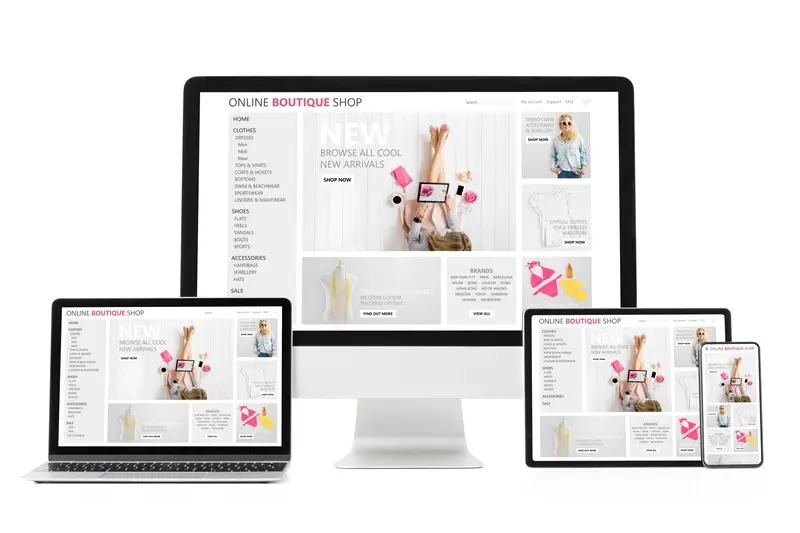What Support Do You Get With No-Code Platforms?
Building a mobile app without coding skills used to be impossible—now it's become the norm for millions of creators worldwide. No-code platforms have opened the doors to app development for everyone from small business owners to creative professionals, but there's one question that comes up time and again: what happens when you get stuck?
The support landscape for no-code platforms varies dramatically depending on which platform you choose. Some offer comprehensive help that rivals traditional development environments, while others leave you scratching your head when things go wrong. Understanding what support you can expect is the difference between launching your mobile app successfully and abandoning it halfway through development.
The strength of a no-code platform isn't just in its drag-and-drop interface—it's in the safety net of platform assistance that catches you when you fall
From my experience working with clients who've used various no-code solutions, the quality of technical help can make or break your app project. Some platforms provide detailed documentation, active communities, and responsive customer service teams. Others offer basic tutorials and hope for the best. This guide will walk you through exactly what support options exist across different no-code platforms, helping you choose the right solution for your mobile app development journey.
Types of Support Available with No-Code Platforms
When you're working with no-code platforms, you'll find there are several different types of support available to help you build your app. I've worked with loads of these platforms over the years, and honestly, the support options can make or break your experience—especially when you're stuck at 2am trying to figure out why your button won't work!
Most no-code platforms offer a mix of self-service and direct support options. You'll typically find comprehensive documentation that walks you through every feature, step-by-step tutorials for common tasks, and video guides that show you exactly what to click. Many platforms also have community forums where other users share tips and solutions.
Main Support Categories
The support you can expect generally falls into these main categories:
- Written documentation and help articles
- Video tutorials and webinars
- Community forums and user groups
- Direct customer support via chat, email, or phone
- Training programmes and certification courses
- Third-party integration help
- Technical troubleshooting services
The quality and availability of these support options varies quite a bit between different platforms. Some focus heavily on community-driven support, whilst others provide dedicated support teams. Understanding what's available before you commit to a platform can save you a lot of headaches later on.
Documentation and Learning Resources
When you're building a mobile app with no-code platforms, good documentation can make or break your experience. I've worked with dozens of these platforms over the years, and the ones that really shine are those that invest properly in their learning materials. The best platforms don't just throw a basic manual at you—they create comprehensive guides that walk you through every feature step by step.
Most established no-code platforms offer multiple types of documentation. You'll typically find getting started guides, detailed feature explanations, and troubleshooting sections. Video tutorials have become particularly popular because they show you exactly what to do rather than just telling you. Some platforms even provide interactive walkthroughs that guide you through building your first app.
What Makes Good Documentation
The quality varies massively between platforms. Look for documentation that includes real examples, clear screenshots, and regular updates. Outdated guides are worse than no guides at all—trust me on this one! The best platforms also provide searchable knowledge bases where you can quickly find answers to specific questions about mobile app development.
- Step-by-step tutorials with screenshots
- Video demonstrations of key features
- Downloadable templates and examples
- Regular updates reflecting new features
- Searchable knowledge base
Before committing to any platform, spend time exploring their documentation. If you can't understand their guides, you'll struggle with platform assistance when you need technical help later.
Community Forums and User Groups
One of the biggest advantages of working with no-code platforms is the communities that spring up around them. These aren't just your typical tech forums where people argue about code—they're genuinely helpful spaces where builders share ideas, solve problems together, and celebrate wins.
Most major no-code platforms have active community forums where users post questions, share templates, and discuss best practices. You'll find everything from beginners asking how to connect two apps together to experienced builders showing off complex workflows they've created. The response times are often surprisingly quick; I've seen people get answers within hours rather than days.
Types of Community Support You'll Find
- Official platform forums with moderators and platform experts
- Facebook groups and LinkedIn communities for specific platforms
- Discord servers for real-time chat and screen sharing
- Reddit communities where users share tutorials and troubleshooting tips
- Local meetup groups in major cities
- YouTube channels run by community members
The quality of these communities varies between platforms, but the established ones like Zapier, Bubble, and Webflow have particularly strong user bases. What I find refreshing is how willing people are to help newcomers—there's less gatekeeping than you might expect in traditional development circles.
Direct Customer Support Channels
When you're building a mobile app with no-code platforms, sometimes you need to speak to a real person—not just read through documentation or browse community forums. That's where direct customer support channels come in, and let me tell you, they can be a lifesaver when you're stuck on a tricky problem.
Most established no-code platforms offer multiple ways to reach their support teams. You'll typically find live chat, email support, and sometimes even phone support depending on your subscription level. The quality varies quite a bit though—some platforms have brilliant technical help teams who really know their stuff, whilst others... well, let's just say they're still learning.
What to Expect from Platform Assistance
Response times range from instant chat replies to several days for complex technical issues. Premium subscribers usually get priority treatment, which makes sense from a business perspective. The support staff can help with everything from basic platform questions to complex integration problems that might break your mobile app.
The best support teams don't just solve your immediate problem—they help you understand why it happened so you can avoid it next time
Before reaching out, gather screenshots, error messages, and a clear description of what you were trying to do. This saves everyone time and gets you back to building your app faster. Most platforms also offer different support tiers, so check what's included in your plan before expecting immediate responses.
Training Programs and Certification
Most no-code platforms offer structured training programs that teach you how to use their tools properly. These aren't just basic tutorials—they're comprehensive courses that take you from beginner to advanced user. I've worked with clients who've completed these programs and the difference in their skill level is remarkable.
Structured Learning Paths
The best platforms create clear learning paths that build your knowledge step by step. You might start with basic drag-and-drop functionality, then move on to data management, and finally tackle complex workflow automation. Each module builds on the previous one, so you're never overwhelmed with too much information at once.
Certification Benefits
Many platforms offer certificates when you complete their training programs. These aren't just pretty documents—they actually mean something in the business world. I've seen job postings that specifically ask for certain no-code certifications. They show employers that you know what you're doing with these tools.
The training usually includes hands-on projects where you build real applications. This practical experience is invaluable because you learn by doing, not just by reading. Some platforms even offer live workshops where you can ask questions and get immediate feedback from instructors who know the platform inside and out.
Third-Party Integration Assistance
One of the biggest advantages of no-code platforms is how they handle third-party integrations—and trust me, after years of wrestling with APIs and complex code, this is a game changer. Most no-code platforms come with built-in connectors for popular services like payment processors, social media platforms, and email marketing tools. But what happens when you need help setting these up or when something goes wrong?
The level of platform assistance you'll receive varies quite a bit between different no-code providers. Some offer dedicated integration specialists who can walk you through connecting your mobile app to services like Stripe, Mailchimp, or Google Analytics. Others provide step-by-step guides and video tutorials that show you exactly which buttons to press and fields to fill in.
Common Integration Support Areas
- Payment gateway setup and configuration
- Social media login integration
- Database connections and data syncing
- Analytics and tracking implementation
- Email and SMS service connections
- Cloud storage and file management systems
The quality of technical help really shines when you're dealing with authentication issues or data mapping problems. These can be tricky even for experienced developers, so having someone who knows the platform inside and out can save you hours of frustration.
Before choosing a no-code platform, check their integration library and ask about their support process for third-party connections—this can make or break your project timeline.
Troubleshooting and Problem Resolution
When something goes wrong with your no-code platform—and trust me, it will at some point—having proper troubleshooting support can make the difference between a minor hiccup and a complete project disaster. I've seen clients panic over simple issues that could have been resolved in minutes with the right guidance.
Most established no-code platforms offer multiple layers of problem resolution. The first line of defence is usually their help documentation and searchable knowledge base, which covers common issues and step-by-step solutions. These resources are getting better every year, with video tutorials and interactive guides becoming standard.
Common Troubleshooting Resources
- Interactive help widgets within the platform interface
- Video troubleshooting guides for visual learners
- Step-by-step written documentation with screenshots
- Community-driven solution databases
- Live chat support for immediate assistance
- Screen-sharing sessions with technical support staff
The best platforms don't just fix your problem—they explain why it happened and how to prevent it next time. This educational approach builds your confidence and reduces future support requests. Some platforms even offer proactive monitoring, alerting you to potential issues before they become real problems.
Premium support tiers often include priority response times and direct access to technical specialists who understand the platform inside and out.
Conclusion
After working with countless no-code platforms over the years, I can tell you that the level of support you receive really does make or break your mobile app development experience. The platforms that invest heavily in their documentation, community forums, and direct customer support channels are the ones that consistently help businesses succeed—whilst those that skimp on support often leave users frustrated and stuck.
What strikes me most is how the support landscape has evolved. We've moved from basic email tickets to comprehensive ecosystems that include video tutorials, live chat, certification programmes, and active communities where real users share practical solutions. The best platforms understand that building a mobile app isn't just about the technical features—it's about having reliable platform assistance when you need it most.
Whether you're troubleshooting a tricky integration or need technical help with a complex workflow, the support structure around your chosen platform becomes your safety net. The platforms that get this right don't just provide tools; they provide confidence. And when you're building something as important as turning your app idea into reality, that confidence is worth its weight in gold.
Choose your no-code platform wisely—the support you receive today will determine your success tomorrow.
Share this
Subscribe To Our Learning Centre
You May Also Like
These Related Guides

Can Blockchain Apps Work On Both Iphone And Android?

What Happens When You Outgrow Your No-Code Solution?



